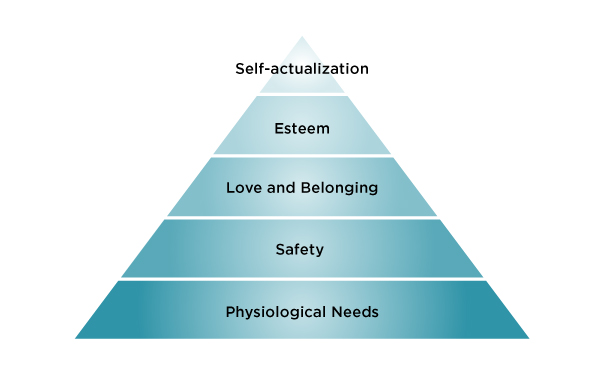[ad_1]
POST SUMMARY:
Each year a new class of veterinarians, veterinary nurses, and veterinary nurses enter the workforce to much triumph and applause. Their cutting-edge knowledge, career passion, and dedication bring a booster shot of energy into our profession. While we are in desperate need of this booster, like any vaccination, are we too sick to receive it? Like that febrile, flea-covered anemic puppy.
Like the promise of COVID vaccines, each year a new class of veterinarians, veterinary technicians, and veterinary nurses enter the workforce to much triumph and applause. Their cutting-edge knowledge, career passion, and dedication bring a booster shot of much-needed energy into our profession. We need them more than ever, and they can’t be just a warm body to fill a hole in the schedule. It is our responsibility to help them thrive in veterinary medicine. In fact, we need them to thrive.
With the shortage of veterinary professionals expected to grow in the next decade and our profession already feeling the strain of the increased pet population that soared during the pandemic, we are more than obligated to keep veterinary professionals and paraprofessionals thriving and working in the profession; the welfare of animals, public health, and our collective and individual wellbeing is reliant on ensuring that trained, educated professionals have satisfying and long-lasting careers.
While we are in desperate need of this booster, like any vaccination, are we too sick to receive it? Like that febrile, flea-covered anemic puppy, we need supportive care before we can even handle this boost. Too often lately veterinarians and our staff are describing themselves not as “thriving” but “surviving”—getting by each day to collapse into tears or exhaustion as soon as we get home, on the car ride, or even at our desk chair. In a profession suffering from failure to recognize the importance of mental health, the pandemic has been particularly troubling and many of us slipped from “surviving” to “struggling” to “crisis.” More recently we have experienced a particularly unsettling string of deaths due to mental illness (and yes, I mean suicides, but the cause of death was mental illness, first, foremost, and most importantly).
Too often lately veterinarians and our staff are describing themselves not as “thriving” but “surviving”—getting by each day to collapse into tears or exhaustion as soon as we get home, on the car ride, or even at our desk chair.
If we want to move toward healing and eventually excelling, please consider Maslow’s hierarchy of needs. The basis of this theory is that an individual’s basic needs must be met before they can be motivated to achieve. At the base of the pyramid are physiological needs (food, water, rest, etc.), then safety (job security, personal safety, emotional safety), then love and belonging (family, friends, relationships), then esteem (respect and recognition), and finally self-actualization (simply being the best that you can be!).

Maslow’s Hierarchy of Needs. Credit: Kheng Guan Toh/shutterstock.com
Learning and teaching, especially learning and teaching well, are generally recognized to be optimized when individuals’ needs are well met and the person is operating mainly at the self-actualization level. To put it bluntly, if you are skipping lunch, going an entire work day without a restroom break, unable to think of the last time you drank a glass of water, or being bullied on the phone, then you aren’t performing at your best.
But the more important issue remains: How can we change this? How do we possibly prepare to welcome, mentor, and coach new graduates entering our profession at this difficult time? How do we move out of this crisis? The Navy SEALs have a great saying: “Slow is smooth and smooth is fast.” Think about the last time you were rushed (it was probably today). Did you make additional mistakes? Trip? Forget something? Slowing down to speed up seems counterintuitive, but upon careful consideration, it makes a lot of sense. Now is the time to slow down, do the work, get prepared, and you’ll be running faster than before in no time. This means we need to do some hard work, not the type we have been doing, but different hard work both personally and professionally.
How do we possibly prepare to welcome, mentor, and coach new graduates entering our profession at this difficult time?
Start doing some of the hard stuff at work. Review, dust off, and rewrite clinic policies and make sure they are being followed. Be aggressive with lunch breaks. Stop squeezing in extra appointments, emergencies, and “quick” nail trims. Coached clients can and will wait. Review limits and scheduling rules. If you are an associate, review your schedule, ask for your promised time off, and take a bathroom break already! (Meet physiological needs). Consider clinic policies on client and staff conflict and find new ways to eliminate it. Create a no-bullying policy that applies to your staff, clients, and the public—consider a “3 strikes-out” policy (or even “2 strikes,” we’re all adults here). Always make sure you are true to these policies. If not, they aren’t policies, but “ideals we are working toward but don’t actually do.” Have natural disaster and crisis plans. Get the lock on the front door fixed. Finish outstanding records, and clean up your desk already! (Meet safety needs.)
Then take the time to make your work environment fun again! Now is the time to have a staff meeting that turns into a party, create a team-building activity, and get your staff involved in creating, editing, and revising your clinic policies. (Meet connection needs.) If there are staff reviews, now is the time for those as well. Set expectations for your existing staff before new staff starts. Consider a staff “brag” book to introduce members of your team. Each person shares a photo, a skill that is their specialty (best at cat dental, placing catheters in fractious dogs, special cytology skills), and a simple fun fact (has been at the clinic for 20 years, bakes the best cakes, can touch their tongue to their nose). This can help your new staff member feel connected too! (Meet esteem needs.)
Stop squeezing in extra appointments, emergencies, and “quick” nail trims. Coached clients can and will wait.
For a thousand reasons taking the time to work on ourselves is the hardest hurdle to overcome. It isn’t selfish to want and need to take time for yourself. Probably the easiest and most neglected thing is simply getting a good night’s sleep. (Meet physiological needs.) Tired and cranky are usually paired together for good reason. Do what you need to get good sleep. (Note to self! This is my biggest weakness.) Pack your lunch and go to the grocery store on a regular basis. It’s also time to get the adulting done. Pay your bills, prepare your taxes, and call your dentist and make an appointment already! (Meet safety needs.)
As vaccinations become more widespread and CDC guidelines change, make time for your family and friends. Enjoy their real-life company and renew those connections. No one will fault you after the year we’ve had. Don’t feel guilty for one second. Consider your personal goals and plans for the next year that bring you a sense of accomplishment. They can be big or small or any other size. Run a marathon, make every one of your kid’s soccer games, learn Spanish, bake the perfect sourdough (I can personally attest to this being hugely gratifying), and buy matching socks! Make sure it is fun. Not every goal in our lives requires suffering. (Esteem is not selfish.)
Lastly, take your vacations—even if they are still only staycations for now—and make sure your team is taking time off too. Do a quick Google search and you’ll quickly have a stockpile of articles and research showing that employees who take their paid vacation time are more productive and more likely to be promoted, get a raise, and help the overall profitability of your clinic. Don’t let vacation shaming happen. Celebrate those who take the time they are given and encourage everyone to do so. Positivity can be just as contagious and is more protective than negativity. In short, time well wasted isn’t!
Finally, the first day that new grad walks through the door of your clinic, start this whole process over again with them at the center. Slow down so they can help you speed up. Make sure they are having their needs met. Remember they don’t have the “riding a bike” routine to fall back on when they are tired like most of us have developed. Make sure they understand and can rely on your policies for guidance when troubling situations arise. Clients will be difficult and rude, normal human mistakes will be made, treatment plans will fail, and patients will die despite our best efforts. No one needs to “learn the hard way.” Real-life is hard enough and adding more negative experiences doesn’t make anyone a better veterinarian, technician, or nurse.
Reducing fear, anxiety, and stress doesn’t just help our patients! Positive reinforcement is for people too. Encourage healthy staff interactions to promote teamwork and learning from new grads. Most of them are excited and flattered to contribute and can add some great ideas to our teams. Have a staff meeting shortly after they arrive to build the new team. Make strategic teams and pair new grads with your staff that are already the best teachers (connections will be made).
Finally, find a mutually beneficial way to give and receive feedback. Follow the platinum rule here—treat them how they want to be treated. Consider that different communication techniques—digital, in-person, or written—are interpreted differently by individuals and you both may need to find a way that works best for you as a mentor-mentee group. Also, decide how often the feedback will be given and how it might change as they progress in their career. Please don’t revert to 90 days or annual reviews just because that’s what’s always been done. Many new grads want more frequent feedback so they can adjust as needed. (Meet respect, and recognition needs.)
Set up regular intervals to take stock and assess how your needs, your staff’s needs, and your colleagues’ needs are being met. Life is all about adjustments. Let’s make the class of 2021 the first to join a changing, healthier profession. Veterinary medicine can be all that they dreamed of and we have the power to make it so.
Dana Varble, DVM, CAE
DVM Class of 2003
[ad_2]





